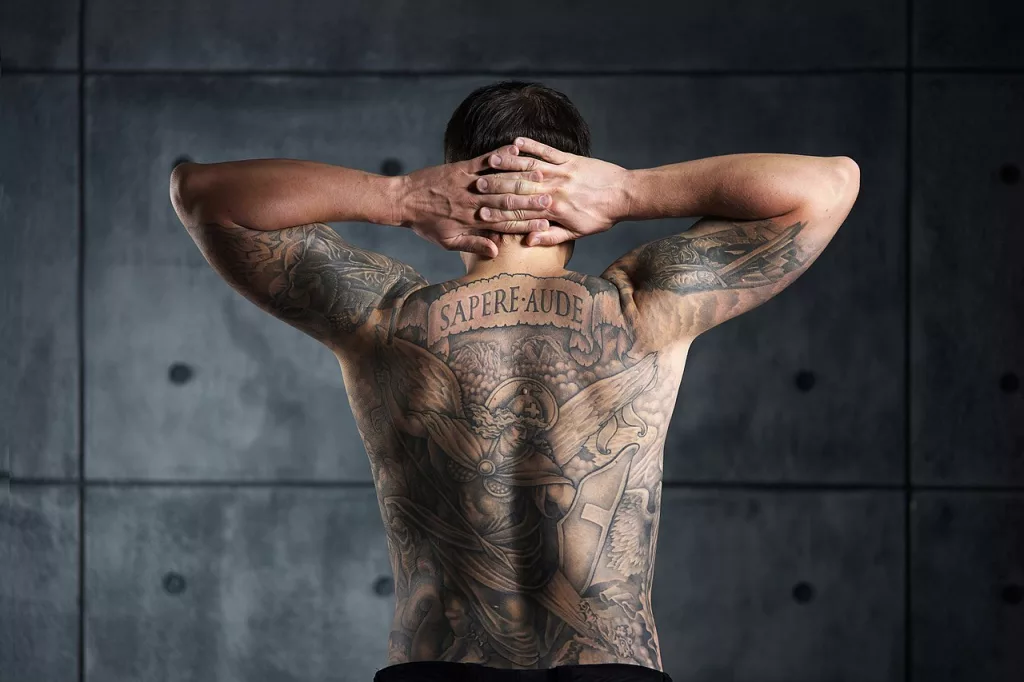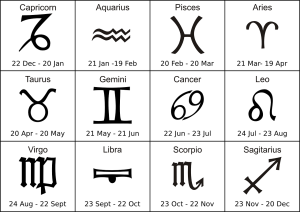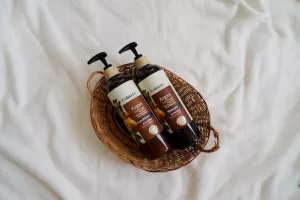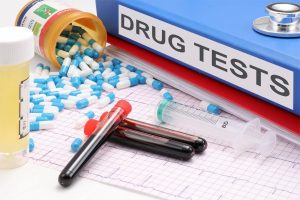Can Breast Milk Help Heal a Tattoo? Expert Opinion

Breastfeeding mothers who have recently gotten a tattoo may wonder if their breast milk can help heal the tattoo. Breast milk is known for its healing properties, and some people believe that it can help with various skin conditions and wounds. However, is it safe to use breast milk to heal a tattoo, and is there any scientific evidence to support this claim?
Breast milk is a complex fluid that contains a variety of nutrients, hormones, and immune-boosting factors. It is known to have antibacterial, antiviral, and anti-inflammatory properties, which can help with wound healing and skin conditions. Some people believe that applying breast milk to a tattoo can help soothe the skin, reduce inflammation, and promote healing. However, there is limited scientific evidence to support this claim, and more research is needed to determine whether breast milk can actually help with tattoo healing.
Key Takeaways
- Breast milk is known for its healing properties and contains various nutrients, hormones, and immune-boosting factors.
- Some people believe that applying breast milk to a tattoo can help with healing, but there is limited scientific evidence to support this claim.
- Breastfeeding mothers should consult with their tattoo artist and healthcare provider before using breast milk to heal a tattoo, and should follow proper aftercare instructions to prevent infection and ensure proper healing.
Breast Milk: Composition and Healing Properties
Breast milk is a complex fluid that provides infants with complete nutrition and immunity. It is composed of water, fats, carbohydrates, proteins, vitamins, minerals, and bioactive compounds that are essential for the growth and development of the baby. The composition of breast milk varies depending on various factors such as the mother’s diet, age, and health status.
Breast milk contains several bioactive compounds that have healing properties. These compounds include immunoglobulins, lactoferrin, lysozyme, and growth factors. Immunoglobulins are antibodies that help fight against infections and diseases. Lactoferrin is an iron-binding protein that has antimicrobial and anti-inflammatory properties. Lysozyme is an enzyme that helps break down bacterial cell walls. Growth factors are proteins that promote cell growth and repair.
Breast milk has been used for centuries as a natural remedy for various ailments. It has been traditionally used to treat skin conditions such as eczema, diaper rash, and cracked nipples. Breast milk has also been used to treat eye infections, ear infections, and sore throats.
Research has shown that breast milk can help promote healing and reduce inflammation. A study published in the Journal of Human Lactation found that breast milk can help heal minor wounds such as cuts and scrapes. The study found that breast milk has antimicrobial and anti-inflammatory properties that can help prevent infections and reduce inflammation.
In conclusion, breast milk is a complex fluid that contains several bioactive compounds that have healing properties. Breast milk has been traditionally used as a natural remedy for various ailments and has been shown to help promote healing and reduce inflammation. While there is limited research on the use of breast milk for tattoo healing, its healing properties suggest that it may have potential as a natural remedy for tattoo aftercare.
Breast Milk and Tattoo Healing: The Connection
Breast milk is known to have healing properties, and some people believe that it can help heal tattoos. While there is limited scientific evidence to support this claim, many individuals have reported positive experiences with using breast milk to heal their tattoos.
Breast milk contains a variety of beneficial substances, including antibodies, growth factors, and anti-inflammatory agents. These substances can help to promote healing and reduce inflammation and infection.
One way that breast milk can be used to heal tattoos is by applying it directly to the tattooed area. This can be done by gently rubbing a small amount of breast milk onto the tattoo several times a day. Some people also recommend soaking a cotton ball in breast milk and holding it against the tattoo for a few minutes at a time.
Another way that breast milk can be used to help heal tattoos is by drinking it. While this may sound unusual, some people believe that drinking breast milk can help to boost the immune system and promote healing from the inside out.
It is important to note that there is no guarantee that using breast milk will help to heal a tattoo, and it is always important to follow proper aftercare instructions provided by a tattoo artist. If you experience any signs of infection or other complications, it is important to seek medical attention right away.
Overall, while there is limited scientific evidence to support the use of breast milk for tattoo healing, many individuals have reported positive experiences with this method. As always, it is important to consult with a healthcare professional before trying any new treatments or remedies.
Scientific Studies and Evidence
There is limited scientific research on the use of breast milk for tattoo healing. However, some studies have investigated the potential benefits of breast milk for wound healing in general.
A study published in the Journal of Wound Care found that breast milk contains a high concentration of growth factors, which can promote wound healing. The study also found that breast milk has antibacterial properties, which can help prevent infection in wounds.
Another study published in the International Journal of Pediatrics found that applying breast milk to diaper rash can help reduce inflammation and promote healing. The study suggests that breast milk may have similar healing properties for other types of skin irritation, including tattoos.
While there is no direct scientific evidence linking breast milk to tattoo healing, some tattoo artists and individuals have reported positive results from using breast milk on tattoos. Proponents of using breast milk for tattoo healing claim that it can help reduce inflammation, prevent infection, and promote faster healing.
However, it is important to note that breast milk is not a sterile substance and can contain bacteria or viruses that can cause infection. Therefore, it is recommended to use caution when using breast milk for tattoo healing and to follow proper hygiene and safety protocols.
Overall, while there is limited scientific evidence on the use of breast milk for tattoo healing, some studies suggest that breast milk may have potential benefits for wound healing in general. However, further research is needed to fully understand the potential benefits and risks of using breast milk for tattoo healing.
Potential Risks and Precautions
Getting a tattoo while breastfeeding can pose some risks to both the mother and the baby. Here are some potential risks and precautions to consider:
- Infection: Tattooing involves needles that puncture the skin, which can increase the risk of infection. Breastfeeding mothers should ensure that the tattoo parlor follows proper hygiene practices and uses sterile equipment to minimize the risk of infection. They should also keep the tattoo clean and dry to prevent infection from developing.
- Allergic reactions: Some people may be allergic to tattoo ink, which can cause an allergic reaction. Breastfeeding mothers should ask their tattoo artist about the ingredients in the ink and do a patch test to check for any allergic reactions before getting a tattoo.
- Pain relief medication: Breastfeeding mothers should avoid taking aspirin or ibuprofen to manage the pain associated with getting a tattoo as these medications can pass into breast milk and harm the baby. Instead, they can take acetaminophen, which is considered safe for breastfeeding mothers.
- Delayed healing: Breastfeeding mothers may experience delayed healing of the tattoo due to the hormonal changes in their body. They should follow the aftercare instructions provided by their tattoo artist carefully and avoid exposing the tattoo to direct sunlight and water for at least two weeks after getting the tattoo.
- Ink toxicity: Tattoo ink contains chemicals that can be harmful to the mother and the baby if ingested. Breastfeeding mothers should avoid getting tattoos on their breasts or nipples as the baby may ingest some of the ink while breastfeeding. They should also wait until they have finished breastfeeding before getting a tattoo removal as the broken-down ink can potentially harm the baby.
Overall, breastfeeding mothers should consult with their healthcare provider before getting a tattoo to ensure that it is safe for them and their baby. They should also choose a reputable tattoo parlor and follow proper aftercare instructions to minimize the risks associated with getting a tattoo.
Alternative Tattoo Aftercare Methods
While traditional aftercare methods like applying ointments and keeping the tattoo clean and dry are effective, some people may prefer to use alternative methods to promote healing and reduce the risk of infection. Here are some alternative tattoo aftercare methods to consider:
Breast Milk
Breast milk is known for its antibacterial and anti-inflammatory properties, which make it a natural alternative to traditional tattoo aftercare products. Some people believe that applying breast milk to a new tattoo can help speed up the healing process and reduce the risk of infection.
While there is limited scientific research on the topic, anecdotal evidence suggests that breast milk may be an effective alternative to traditional aftercare methods. However, it is important to note that breast milk can spoil quickly and may not be as effective as traditional aftercare products in preventing infection.
Aloe Vera
Aloe vera is a natural anti-inflammatory and antibacterial agent that can help soothe and heal a new tattoo. Applying aloe vera gel to a new tattoo can help reduce redness, swelling, and itching, while also promoting faster healing.
To use aloe vera as a tattoo aftercare method, simply apply a thin layer of gel to the tattooed area and allow it to dry. Repeat this process several times a day until the tattoo is fully healed.
Coconut Oil
Coconut oil is a natural moisturizer that can help keep a new tattoo hydrated and promote faster healing. Applying a thin layer of coconut oil to a new tattoo can help reduce itching and flaking, while also preventing the tattoo from drying out.
To use coconut oil as a tattoo aftercare method, simply apply a small amount of oil to the tattooed area and massage it in gently. Repeat this process several times a day until the tattoo is fully healed.
Tea Tree Oil
Tea tree oil is a natural antiseptic that can help prevent infection and promote healing. Applying a small amount of tea tree oil to a new tattoo can help reduce the risk of infection and speed up the healing process.
To use tea tree oil as a tattoo aftercare method, dilute a few drops of oil in a carrier oil like coconut or olive oil and apply it to the tattooed area. Repeat this process several times a day until the tattoo is fully healed.
Conclusion
While there is limited research on the topic, it appears that breast milk may have some potential benefits for healing tattoos. The natural antibacterial properties of breast milk may help prevent infection and promote healing. Additionally, the high levels of immunoglobulins in breast milk may help boost the immune system and reduce inflammation.
However, it is important to note that breast milk is not a substitute for proper aftercare. Following the advice of a professional tattoo artist and keeping the tattoo clean and moisturized is still the best way to ensure proper healing.
Furthermore, it is important to consider the potential risks associated with using breast milk on a tattoo. Breast milk can contain bacteria and viruses, and there is a risk of transmitting infections if proper hygiene practices are not followed. Additionally, some people may have an allergic reaction to breast milk, so it is important to test a small area before applying it to the entire tattoo.
Overall, while breast milk may have some potential benefits for tattoo healing, it is important to approach the topic with caution and consult with a healthcare professional or tattoo artist before using it.
Frequently Asked Questions
Can you get a tattoo on your chest while breastfeeding?
There is no evidence to suggest that getting a tattoo on your chest while breastfeeding is harmful to your baby. However, it is important to ensure that the tattoo parlor you choose follows proper hygiene and safety protocols to avoid any risk of infection. It is also recommended to wait until your baby is at least six months old before getting a tattoo, as this is when their immune system is more developed.
Can you get a tattoo while pumping?
Yes, you can get a tattoo while pumping. However, it is recommended to wait until you have finished pumping for the day before getting a tattoo, as the process can cause discomfort and may affect milk production. It is also important to ensure that you follow proper aftercare instructions to avoid infection and minimize any risk of harm to your baby.
Can I get a tattoo while pregnant?
It is not recommended to get a tattoo while pregnant, as the process can be stressful on the body and may increase the risk of infection. Additionally, some tattoo inks may contain harmful chemicals that could potentially harm the developing fetus. It is best to wait until after you have given birth and finished breastfeeding before getting a tattoo.
How long should you wait to breastfeed after getting a tattoo?
It is recommended to wait at least 24 hours after getting a tattoo before breastfeeding. This allows the skin to heal and reduces the risk of infection. However, it is important to follow proper aftercare instructions and monitor the tattoo for any signs of infection or other complications.
Does tattoo ink affect breast milk?
There is no evidence to suggest that tattoo ink affects breast milk or the health of your baby. However, it is important to ensure that the tattoo parlor you choose follows proper hygiene and safety protocols to avoid any risk of infection. It is also recommended to wait until your baby is at least six months old before getting a tattoo, as this is when their immune system is more developed.
Can you sell breast milk if you have tattoos?
Yes, you can sell breast milk if you have tattoos. However, some milk banks may have specific guidelines regarding tattoos and may require additional testing or screening before accepting your milk. It is best to check with your local milk bank or donation center for their specific policies and requirements.








